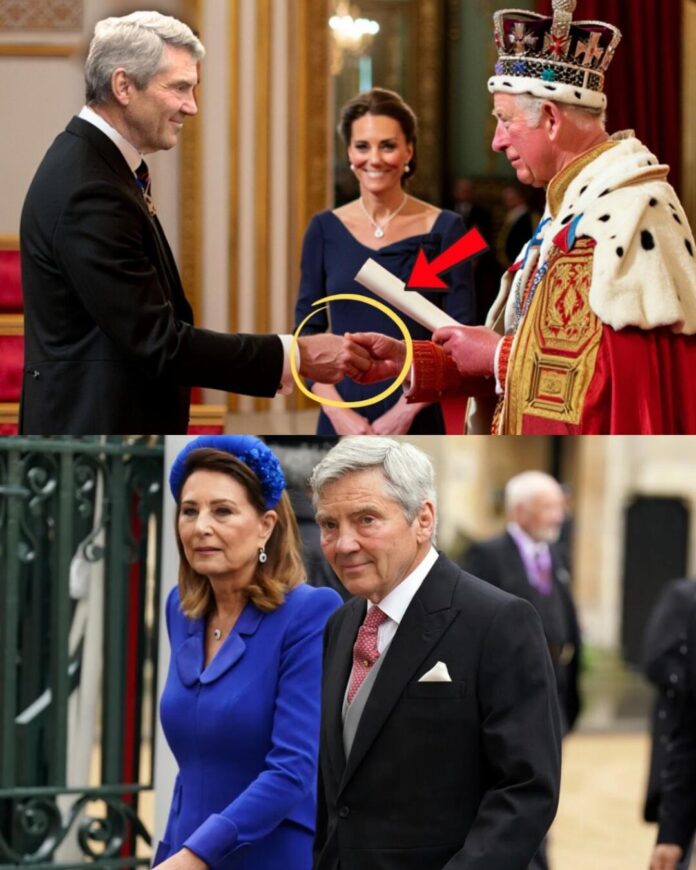The palace corridors are buzzing with disbelief after King Charles III, battling his own health struggles, made the extraordinary move of officially appointing Michael Middleton — Catherine’s father — as a Royal Advisor to his son, Prince William.
The announcement, described by one insider as “completely out of the blue,” has sparked a wave of speculation and left many courtiers reeling. Never before has an in-law of the royal family been given such a direct and influential role in shaping the future King’s path.
A senior palace aide, speaking under anonymity, admitted:
“This is unprecedented. Michael Middleton is respected as Catherine’s father, but placing him in an official advisory role crosses lines that were once thought untouchable. Many inside the palace are asking — why now, and why him?”
Michael Middleton, 74, has long been admired for his quiet dignity and low-profile approach despite being father-in-law to the future monarch. However, his sudden elevation to advisor has fueled whispers of hidden agendas within the House of Windsor.
Some royal experts speculate that King Charles, aware of his own fragile health, may be trying to secure a circle of absolute trust around William before eventually handing over more responsibilities. Others question whether Catherine herself influenced the decision, given her close bond with her father and his reputation for stability and discretion.
The move has also reignited comparisons with the late Princess Diana’s family. One commentator noted:
“Diana’s family never had this kind of access or power within the monarchy. For Catherine’s father to step into such a role could be a deliberate signal that the Middletons are not just relatives, but trusted pillars of the next royal generation.”
On social media, reactions have been explosive:
-
“Michael Middleton as Royal Advisor? That’s history in the making.”
-
“This proves William and Kate are consolidating their power within the palace.”
-
“Is Charles protecting William… or creating a new royal rift?”
As whispers of tension among palace insiders grow louder, one question remains:
Is this a bold step toward modernizing the monarchy — or a controversial gamble that will spark a new royal feud behind closed doors?
